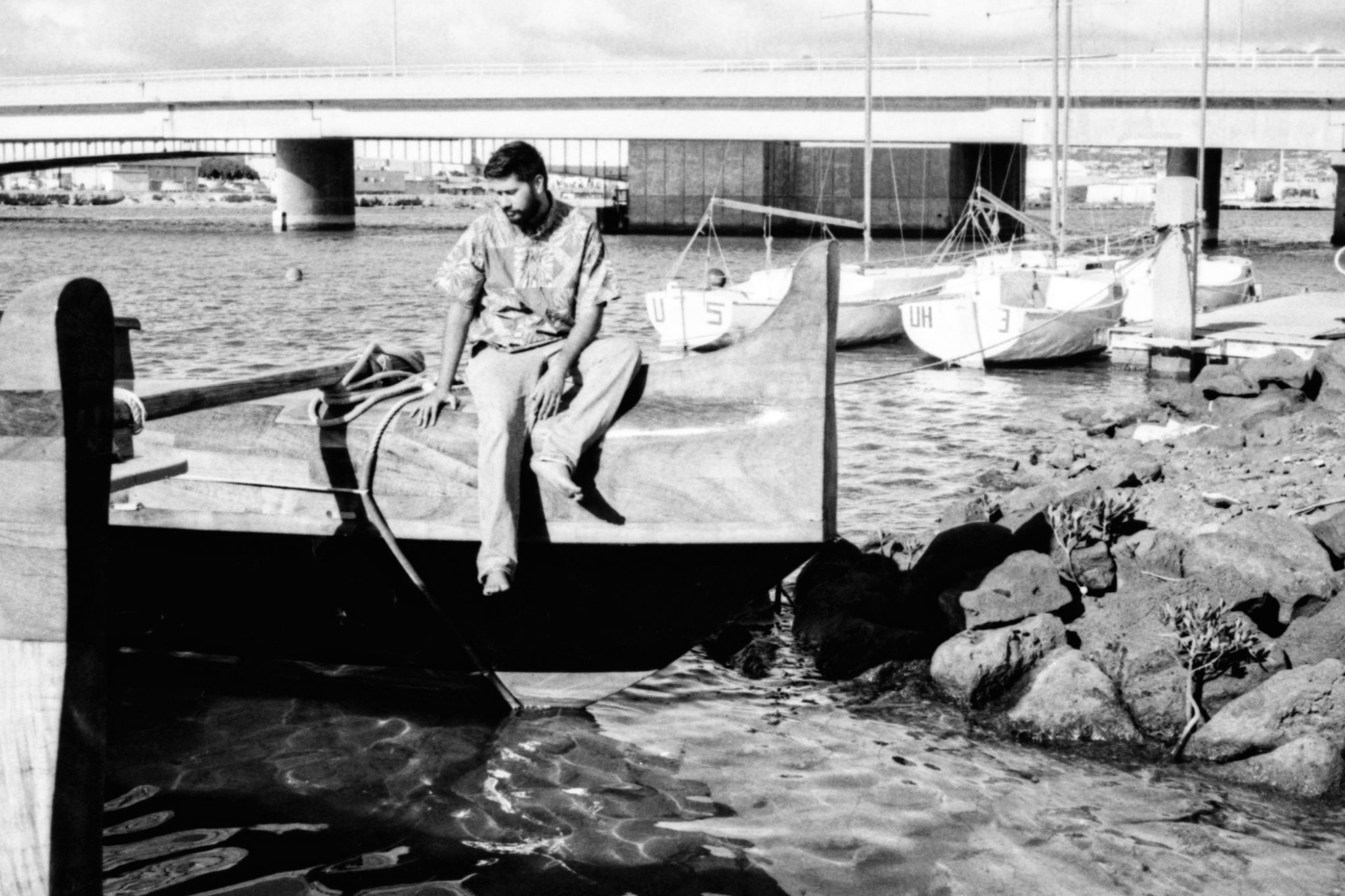Image by John Hook
Sundance Institute’s Native Filmmakers Lab is helping indigenous filmmakers re-shape Hawai‘i’s cinematic arc.
His full name, Kamaninoka‘āina, meaning “the wind of the land,” was given to him by his father, who valued the importance of the land and all that it provides. “He wanted me to be like the wind,” ‘Āina Paikai says. “Free.” This free-moving mentality might be how Paikai is able to create such amusing and entertaining films, like Moke Action, a slapstick comedy about two guys looking to “scrap ova one broke slippah” (subtitled for the “Pidgin English challenged”), while remaining grounded in his identity. “I like to call it drama-dy,” he says. “It makes for an easy reaction for an audience.”
His name also appears as screenwriter, producer, and director alongside films including Nani Ke Kalo, which imagines what Hawai‘i would be like if the kingdom was returned, and The Great Heart of Waiokāne, a documentary about Edward Wendt, a Vietnam war veteran and advocate for Native Hawaiian rights who continues to battle Alexander & Baldwin over water diversions on Maui.
Historically, Paikai says film hasn’t been produced or told from an indigenous perspective. “I think it’s important to offer that perspective and insight,” the 30-year-old filmmaker says from the ‘Ōiwi TV headquarters in Honolulu, where he works as a photographer and editor. “I hope to make films that are impactful to Hawai‘i and worldly enough for all of us to enjoy.”
Paikai, who grew up in Pearl City, turned to video games and comic books as an adolescent looking for escape, and it was ultimately this fantasy realm that drew him into a career in media. He enrolled in the Academy for Creative Media at the University of Hawai‘i at Mānoa and was captivated by the foreign films he watched in prerequisite classes. “Seeing films with the actors speaking different languages got me thinking about why there weren’t more films in Native Hawaiian,” he says. “That was really the spark.”
He quickly took to the indigenous filmmaking track under the wing of the late Merata Mita, a pioneering Maori filmmaker known for her work on Mauri (1988), Hotere (2001), and Boy (2010). “She always used to tell me, ‘Anyone can tell a story, but not in the proper way,’” he recalls. “She became one of my first mentors, and was the one who groomed Bird [Runningwater] into his current position. She even got me this job.”
He found further inspiration in indigenous movies like City of God (2002) and What We Do in the Shadows (2014), the kind of films that, he says, break the mold of what native movies are supposed to be.
“The native film model … lacks authenticity,” he says. “We are such a small group of peoples that it’s more than just being slid in as a minority group.”
He began writing scripts in ‘ōlelo Hawai‘i, in the Native Hawaiian language, and quickly developed an approach to filmmaking that portrayed serious issues in a genuine but light-hearted way. One example is a work-in-progress documentary he began while immersed in Native Lab. Out of hundreds of submissions, his script about the late George Jarrett Helm Jr., a Hawaiian activist and talented falsetto musician nicknamed “Da Frog,” was enough to win over the judging panel.
“For me, he’s been a dedicated Hawaiian hero,” he says. “A lot of people don’t understand his story. He was a beautifully talented musician prior to his activism. I wanted to portray his love of the land through his music. He overcomes his raspy voice, bullying from his brother, ultimately finding confidence for what he needed to do.”
Paikai is a fan of all genres, from dark depictions of humanity to comedic releases to everyday documentations such as that of Hōkūle‘a’s Worldwide Voyage, part of a series he’s helping ‘Ōiwi TV produce (he recently returned from documenting the leg of the trip from Tahiti to Samoa). He has an insatiable desire to pose questions, imagine scenarios, and play with the future. In his short film Blessed Assurance, he explores the question, “What if Hawai‘i ran out of gas?” In it, a young man spends the day surfing, spearfishing, pounding poi, and walking everywhere because there are no running cars. Or, he poses in his film Nani Ke Kalo, if the Hawaiian Kingdom was reinstated, what would Hawai‘i be like in 30 years? According to Paikai’s imaginations, the language would be restored and only the elderly would speak English.
Asked if he’s ever surprised by how his films are received, he’s characteristically modest.
“It’s for other people to define. If we keep the emphasis on the art, we can keep the integrity of film intact,” he says. “My route is to keep putting stuff out there, and people will either enjoy it or not. Either way, it will help our culture along the way.”






